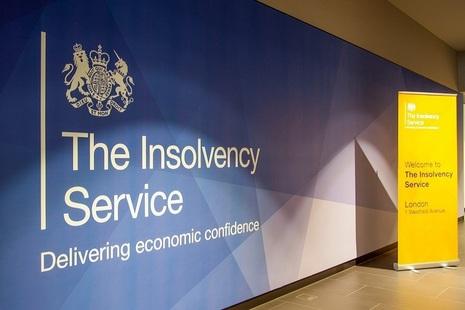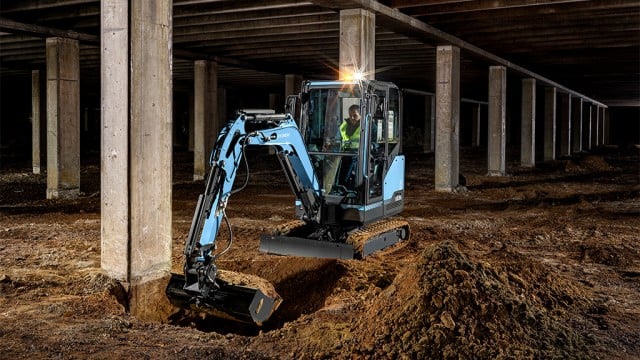Tigercat vs. Cat: A Long Legal Battle Over Trademarks Resumes
A U.S. trademark board ruled Tigercat's trademark application would infringe on the “CAT” mark, but the company is challenging...

An 11-year battle between Caterpillar and Tigercat over their trademarks will continue on, after a federal administrative board recently ruled that Tigercat's trademark application would infringe on the “CAT” mark.
Tigercat’s lawsuit against Caterpillar in U.S. District Court in Delaware has been stayed for six years while awaiting a decision from the U.S. Patent and Trademark Office’s Trademark Trial and Appeal Board.
Caterpillar argues that Cat is a long-held, famous trademark, and the “Tigercat” mark on competitive products causes confusion with the public and dilutes its distinctiveness. The company is challenging Tigercat's application for a trademark for "off road industrial vehicles."
Tigercat, however, argues that the two companies have co-existed for “many years with no issue of consumer confusion,” nor dilution of the Cat trademark.
“Caterpillar’s asserted marks are not sufficiently famous to the general consuming public to qualify for protection under the federal trademark dilution statute,” the company’s lawsuit says.
The board issued its ruling June 28, 2024, against Tigercat, noting that the case had amassed more than 13,000 pages of evidence.
It decided, among other things, that the dominant word is not “tiger” but “cat” in its trademark, and the two words essentially have the same meaning. It also argued that the two names were similar in sound and appearance, and that it could likely lead to confusion.
“In other words, a ‘tiger cat’ is a type of feline or cat,” the board’s decision reads. “Thus, with or without ‘tiger’ as a modifier, the meaning and commercial impression of TIGERCAT and CAT are very similar.”
It rejected Tigercat’s assertion that the “CAT mark would be perceived as a reference to a caterpillar.”
It also rejected the argument that “Bobcat” would be an example of “prior goods” with no Cat trademark infringement. The board said evidence of another company with a similar name for similar goods falls short of evidence that the Cat trademark is “weak or diluted.”
“On this record, we find Opposer’s CAT mark inherently distinctive and arbitrary as applied to the Prior Goods, and therefore conceptually strong. Applicant’s limited evidence of relevant third-party use and registration is insufficient to reduce the scope of protection.”
The board determined that Caterpillar proved “by a preponderance of the evidence” that the Tigercat mark on overlapping products in overlapping markets would lead to “likely confusion.”
Tigercat subsequently refiled its lawsuit August 28 against Caterpillar to challenge the board’s ruling and ask the court to declare it has not infringed on the Cat trademark.
Ongoing Trademark Fight
 Caterpillar
Caterpillar
Over the years, the two companies’ lawyers wrote back and forth on the matter.
According to the U.S. trademark office, “A trademark can be any word, phrase, symbol, design or a combination of these things that identifies your goods or services. It's how customers recognize you in the marketplace and distinguish you from your competitors.”
Tigercat was issued a U.S. trademark in 1999 for “specialized forestry equipment,” such as log bunchers, log loaders, skidders, bunching saws and bunching shears. Caterpillar said in court filings it had not officially opposed the trademark as long as the Tigercat name stayed within the niche forestry-equipment market.
In 2013, Tigercat filed for the trademark to be extended to “off road industrial equipment, namely aerial devices, mulchers and sprayers.” Caterpillar opposed the trademark application.
In a letter to Tigercat, Caterpillar’s attorney Christopher P. Foley wrote:
“In view of the strength of the CAT brand in identical and related fields, Caterpillar is concerned that your client’s use is likely to mislead others into believing its activities are associated with or sponsored by Caterpillar. It is also likely to dilute the distinctiveness of the well-known Cat brand.”
Caterpillar said in court filings that the application used “broadly covered words” that could encompass new fields, such as construction, oil and gas, and mining. Caterpillar added that it had also learned Tigercat was already using the name on equipment that would be in competition with it.
Tigercat Sues
Following Caterpillar’s challenge of its trademark application, Tigercat International sued in November 2016.
It sought relief from the court and a declaration that it had not infringed upon or diluted the Cat trademark. It said it was seeking to resolve the controversy and clarify its rights.
Caterpillar “has placed an ominous cloud over Tigercat’s longstanding use of its Tigercat mark.” It also argued that Caterpillar had not filed objections before 2013 on the use of the name.
Caterpillar countersued for trademark infringement, disruptive trade practices and unfair competition. It said it had been “damaged and irreparably injured” by Tigercat.
A Six-Year Wait
The case was stayed six years ago at the request of Caterpillar until the Trademark Appeal Board made a decision.
In 2023, a District Court judge administratively closed the case due to the lengthy wait. The case could be reopened after the board’s decision, the judge ruled, which Tigercat has filed to do.
Tigercat argues the board is “an administrative tribunal only to determine the right to register a trademark” and that the larger infringement decision should be up to the court.
It seeks to have the controversy resolved and eliminate doubt over Tigercat’s use of the name. It also seeks legal costs and any other relief the court decides.
Caterpillar seeks to dismiss Tigercat’s suit and deny its trademark registration for “non-forestry goods and services.” It wants Tigercat to destroy all such products that have the Tigercat mark, and the company pay Caterpillar “all profits arising from the foregoing acts” and any damages the court deems necessary, as well as legal costs.
Both seek a jury trial.

 machineryasia
machineryasia 









